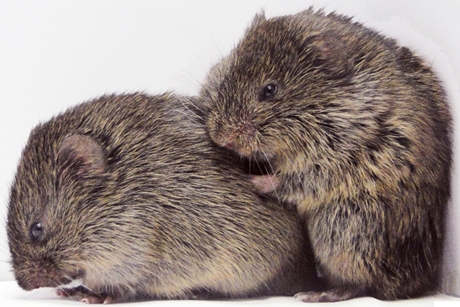While empathy has been previously observed in dogs, dolphins and elephants, such an observation has never been made in a rodent – that is, until now.
Scientists with the Yerkes National Primate Research Center at Emory University in Atlanta, Georgia, have documented empathetic behavior in a species of small rodents known as prairie voles.
According to the researchers, whose findings were published in the journal Science, voles will lick their relatives quicker and for a longer period of time when their relatives are stressed.
Grooming appears to serve as a therapeutic practice among prairie voles, United Press International reported.
The scientists behind the study setup an experiment in which a couple of voles were briefly removed from their relatives. Once isolated, one of the two voles was shocked in order to induce heightened levels of stress before being introduced to the group.
In the case of non-related voles under stress, the researchers noted that they would offer grooming, but no alteration to their licking.
According to the researchers, their findings suggest that the consoling behavior found in the prairie voles evolved out of their monogamous social structure through adjustments to their brain systems that pertain to maternal nurturing– something all mammals share.
Co-author Larry Young, PhD, a professor with the Emory University School of Medicine Department of Psychiatry and Behavioral Sciences, explained in a statement that “many” of the complex traits found in humans “have their roots in fundamental brain processes that are shared among many other species” and now we “have the opportunity to explore in detail the neural mechanisms underlying empathetic responses in a laboratory rodent with clear implications for humans”.
Many complex human traits have their roots in fundamental brain processes that are shared among many other species […] We now have the opportunity to explore in detail the neural mechanisms underlying empathetic responses in a laboratory rodent with clear implications for humans
The study, which was funded by the National Institute of Mental Health, is the first to show consolation outside of a large-brained animal.
























